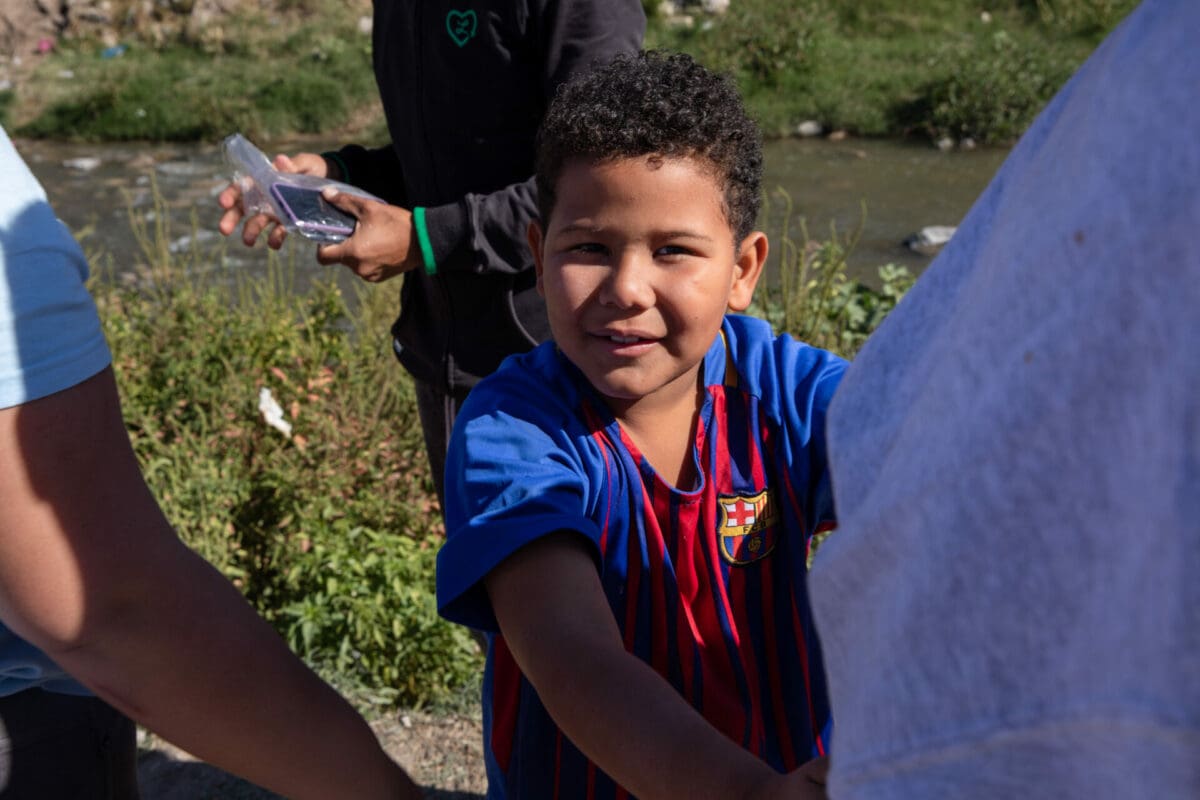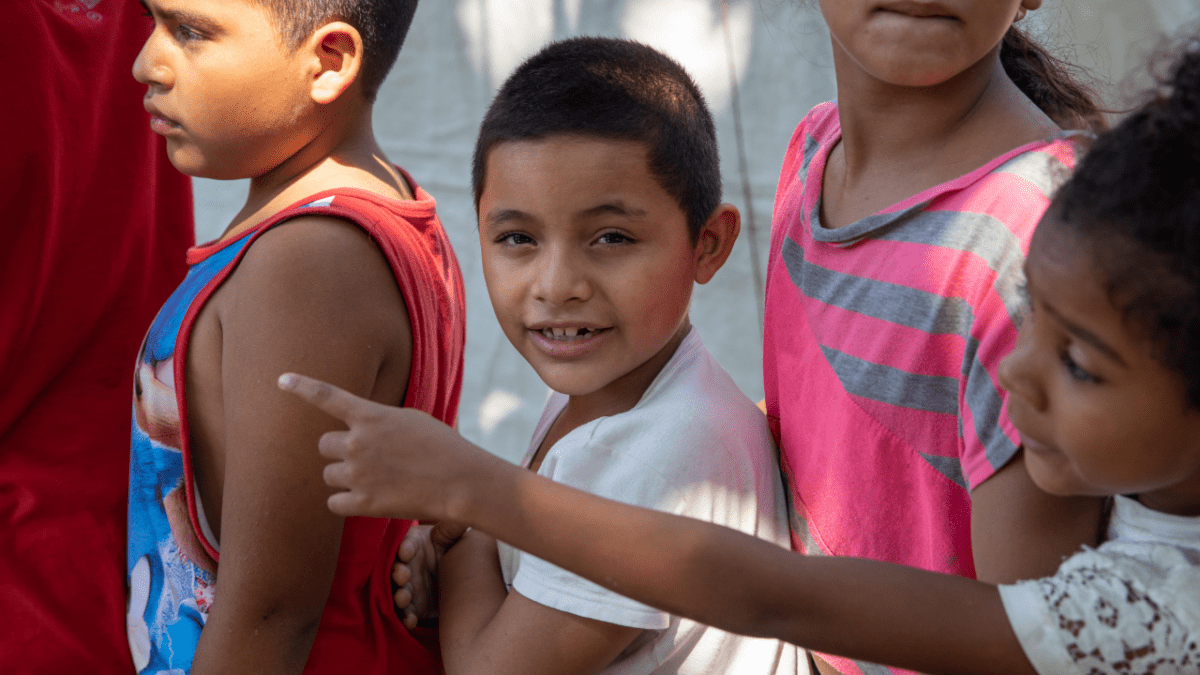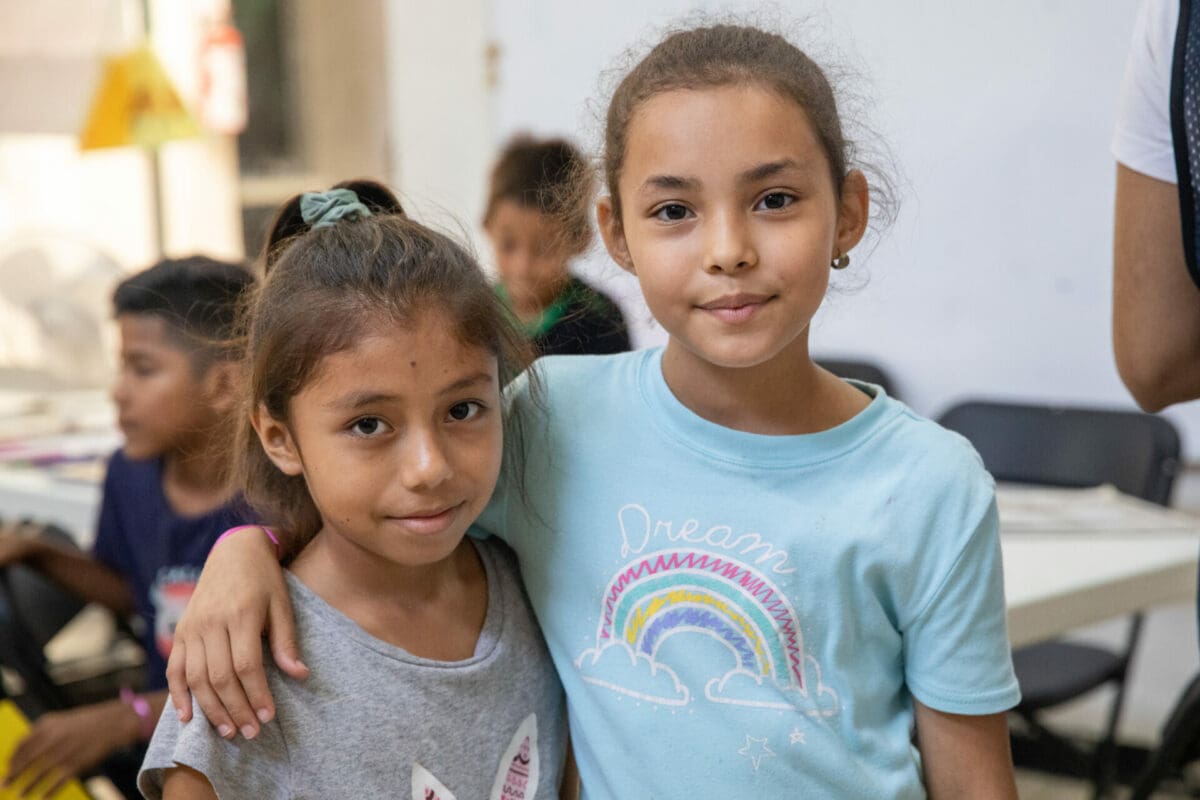KIND Promotes Partnerships for Family Life for Migrant Children in Mexico
One of the greatest challenges for the protection of migrant children in Mexico is the guarantee of the right to live in a family. Many children and adolescents migrating in Mexico travel unaccompanied by parents or caregivers, are separated from their parents or caregivers, or face the risk of being separated during their entry, stay, or transit through Mexico.
KIND collaborates with Mexican authorities and partner organizations to ensure that the right to live in a family is valued in best interests of the child determinations for the issuance of protection measures, such as family reunification or alternative care.
Forum convened by SIPINNA, IDC and KIND
To promote and ensure the right to live in a family for children and adolescents on the move, KIND joined the National System for the Comprehensive Protection of Children and Adolescents (SIPINNA) and the International Detention Coalition (IDC) in the “Forum on the Right to Live in a Family for Children and Adolescents in Human Mobility in Mexico: Family Reunification” July 22-23 in Mexico City.
With the objectives of strengthening the exchange of knowledge and generating reflections and proposals to guarantee the right to live in a family, nearly 60 experts from the federal and local government, civil society organizations, and international organizations reviewed and discussed the scope of existing public policies and procedures applicable to migrant and refugee children.
Forum main findings
The dialogues focused on the different options for family life and the progress and challenges in the processes of asylum, migration and protection of rights, coordination between instances and the needs for resources and professionalization.
High-level public officials participated including Ambassador Joel Hernández García of the Ministry of Foreign Affairs, Andrés Ramírez Silva, Coordinator of the Mexican Commission for Refugee Assistance (COMAR) and academic experts Dr. Pablo Ceriani and Dr. Gracy Pelacani. Their participation and that of officials specializing in children and adolescents in mobility from the states of Chiapas, Tabasco, Veracruz, Chihuahua and Tamaulipas, were fundamental in nurturing the dialogues and arriving at concrete proposals that can be adopted and worked on for the benefit of the right to live in a family for both migrant and refugee children.
Some findings and results were:
- The recognition of diverse family compositions and the importance of considering affective ties, to avoid unnecessary separation.
- The determinations of the best interests of the child dictated by the protection prosecutors’ offices as the guiding component of decision-making, where it is essential to assess all options for family, nuclear and extended life in a country of origin, in Mexico or in a third country, for the protection and comprehensive restitution of rights.
- Migratory irregularity as a non-defining element for the determination of the best interests of the child, but important as an element of vulnerability for the protection and comprehensive restitution of rights.
- The importance of advancing in the implementation of alternative care and the use of residential spaces as a last resort of care and always for short periods of time.
- The priority resolution of protection and asylum processes and the importance of expeditious migratory regularization to prevent family separations, facilitate family life and avoid unnecessary obstacles to access to other rights.
- The opportunity to develop manuals, protocols and guides for the instances of attention and protection of rights in the assessment and decision-making, and to generate and disseminate informative materials on family unity and reunification.
- The need to reinforce specialized training for children aimed at different authorities, including security authorities such as police and National Guard.
- The key role of SIPINNA and its Commissions for Migrant and Refugee Children, both at the national and local levels, for inter-institutional coordination that guarantees family life and comprehensive protection
- Increase the capacities and resources of the Protection Prosecutor’s Offices, especially local ones, to increase their autonomy and improve processes.
- Advance in the adoption of the Comprehensive Protection Routes for children and adolescents in the context of human mobility at the local level from the SIPINNA and the Special Commissions.
- Develop mechanisms for transnational communication and coordination between child protection authorities in countries of origin, transit and destination and, where appropriate, establish bilateral and multilateral agreements that facilitate the continuous protection of children and adolescents on the move and guarantee family life.
The forum allowed KIND’s Mexico Advocacy team to identify the main challenges and possible solutions at different levels. Some possible areas of regulatory improvement, coordination mechanisms, resource allocation, as well as training processes focused on the clarification of viable roles and routes were documented and evaluated.
The results obtained are extremely valuable to continue working to guarantee the family life of children and adolescents on the move in Mexico hand in hand with the authorities responsible for the comprehensive protection of migrant children, allied civil organizations and international agencies.



